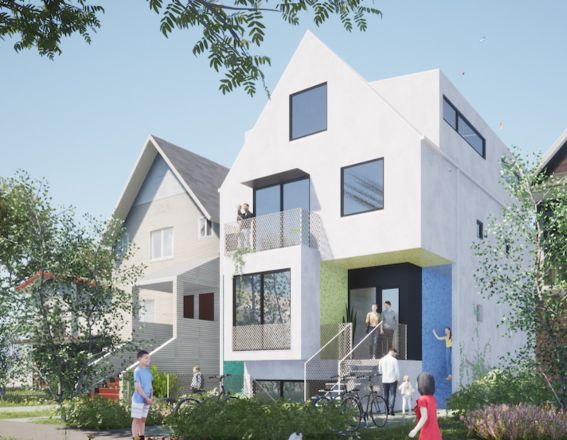Programs & Initiatives for Making Homes More Affordable in BC
British Columbia is a wonderful place to live, but it also faces housing challenges. Prices keep rising while options for middle-class families shrink. New programs try to change that for people who earn an average wage but still struggle to afford competitive market rates. Creative solutions like Making HOME and the Affordable Home Ownership Program (AHOP) ease barriers for underserved middle-income buyers.
Amid these ongoing efforts to improve housing affordability, new opportunities to fund these initiatives have emerged. One such opportunity is exploring the potential of online casino revenues. As the province contemplates ways to further support its citizens in obtaining affordable housing, the question arises: Can the revenue generated from online casinos significantly contribute to these housing programs? This article delves into the feasibility of harnessing online casino profits to enhance and expand affordable home initiatives in BC, potentially opening new avenues for funding solutions that could benefit a larger portion of the population.
BC’s Tough Housing Market
The benchmark price to buy a standard detached house now exceeds $1.5 million across Vancouver. Yet innovative approaches like Making HOME have begun permitting the strategic addition of over 10,000 cheaper homes and new houses on Vancouver’s uniform 33×130 ft single-family lots. This gentle density boost intends to enhance housing diversity.
Middle-income households earning between $80,000 and $120,000 annually especially feel the squeeze. First-time home buyers face barriers breaking into the market to find family housing, while seniors can’t downsize affordably. Professionals like teachers or healthcare aids make too much for subsidies yet not enough for current market rates. More affordable rentals are also disappearing.
New solutions aim to provide homes for all budgets through creative partnerships between government agencies, developers and community groups leveraging underused space. Making the most of standard lot sizes in existing areas holds the potential to improve access if guided properly.
Making HOME: A Housing Plan for All of Us
In September 2022, Vancouver Mayor put forward Making HOME: A Housing Plan for All of Us (Home Options for Middle-income Earners), building on the previously proposed Making HOME initiative. This innovative, affordable housing program allows owners of detached houses on standard 33×130 ft single-family lots across Vancouver to add up to six new ground-oriented condo units on their property through creative small-scale infill construction.
The City then sells these new middle-class homes ranging from studios to three-bedrooms built in the side and backyards of existing houses to qualifying residents at rates approximately 20% below current market prices for new builds. Legal resale price caps will ensure future middle-class houses in Vancouver, Canada, stay affordable in perpetuity below $750,000.

Making HOME 2.0 (approved) intends to spur 10,000 new dwellings tailored to forgotten groups across previously exclusive single-family neighbourhoods over the coming years by unlocking land value gains. Funds raised let the City of Vancouver invest in constructing affordable rental apartments for lower incomes, repairing aging infrastructure, expanding childcare and green space, and pursuing Climate Emergency Action Plan environmental goals – improving livability while deterring harmful speculation.
It provides a creative pathway allowing more middle-income households earning between $80,000-$120,000 yearly to achieve homeownership in Vancouver amid intensely rising prices, helping address how to afford to live in Vancouver amid limited family housing supply. Strategically adding units on existing lots aims to optimize the utilization of residential land. The innovative approach shows the City’s commitment to accessible options for homes benefitting residents across demographics.
Affordable Home Ownership Program
BC Housing operates AHOP – the Affordable Home Ownership Program – to help more residents buy their first home for less. It gives accepted middle-class applicants with steady jobs a no-interest second mortgage for around 10% of a home’s purchase price. This lowers the amount you must borrow and pay monthly interest with your primary lender.
To qualify, meet income limits for your household size without owning existing property domestically or overseas. Be a Canadian citizen or permanent resident who has lived in BC for over a year. Leverage the second “helper” mortgage from AHOP that cuts buying costs for five years. It stays on the title to transfer affordably later, so additional aspiring homeowners down the road also get breaks on pricing as you did initially.

First-Time Home Buyers’ Program
British Columbia’s First Time Home Buyers’ Program reduces or waives the typical property transfer tax levied when purchasing your first home. This closing cost saving allows new ownership aspirants to enter the market with less financial burden.
All applicants must be Canadian citizens or permanent residents who have lived in BC for at least 12 months before registration or filed provincial income taxes recently. Eligible first-timers have never owned property in BC or abroad and commit to local residency by making the home their principal address. The property’s fair market value must also fall under $500,000.
Meeting these conditions lets participants avoid up to $20,000 in property transfer fees at closing. If you forgot to apply initially, you can request a refund within 18 months after purchase. The exemption stays in place if you live in the home as your primary residence for the first year.
First Steps for Potential Home Seekers
- Build a comprehensive budget estimating all ownership costs beyond the purchase price.
- Set a savings target for increasing your down payment – larger is better.
- Research all neighbourhoods, balancing preferences with ownership costs.
- Look further from central areas for deals but confirm commute viability.
- Get pre-approved for a mortgage amount after budgeting expenses.
- Consult a housing-focused financial planner to stress test for variability.
- Study past sales data in neighbourhoods of interest to gauge typical value changes.
- Attend open houses to track values for different home types and locations.
- Consider co-purchasing with family or friends to divide expenses.
- Consider co-purchasing with family or friends. Share future appreciation and divide big expenses.
Creative Future Housing Solutions
Looking forward, exciting living experiments help small groups share ownership of detached homes and apartment buildings through what’s called co-housing and community land trusts. Residents govern shared spaces together and split costs below full market rates. Though uncommon today, these alternative shared models can grow affordably with government support and public participation over time.
The road ahead requires combined contributions from leadership expanding access and communities collaborating creatively. For British Columbians feeling the housing affordability squeeze, the programs above offer rays of hope – make sure to understand all options available on your home-seeking journey.
